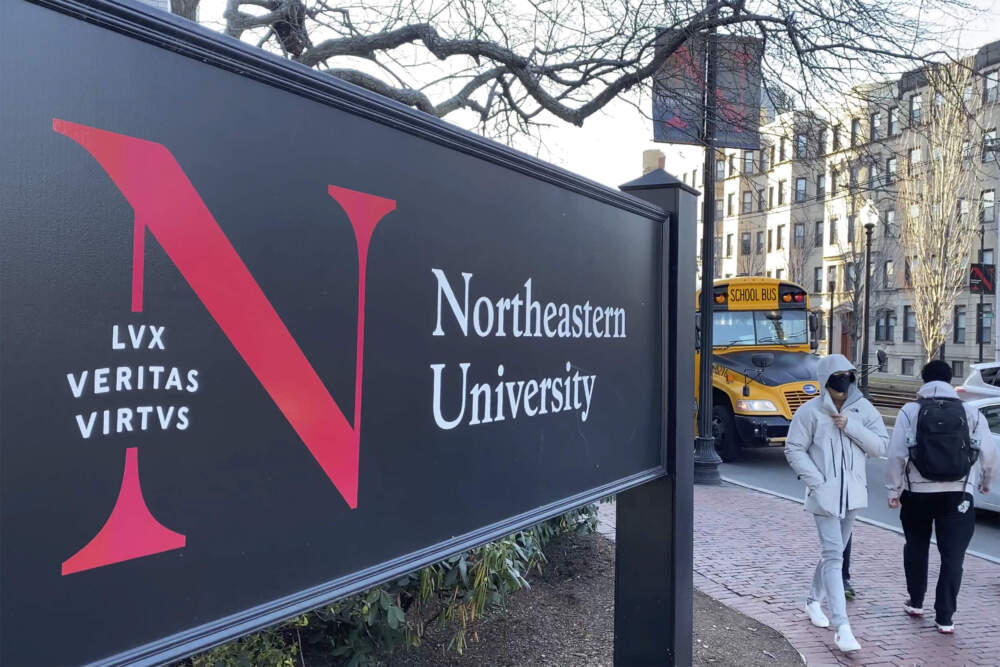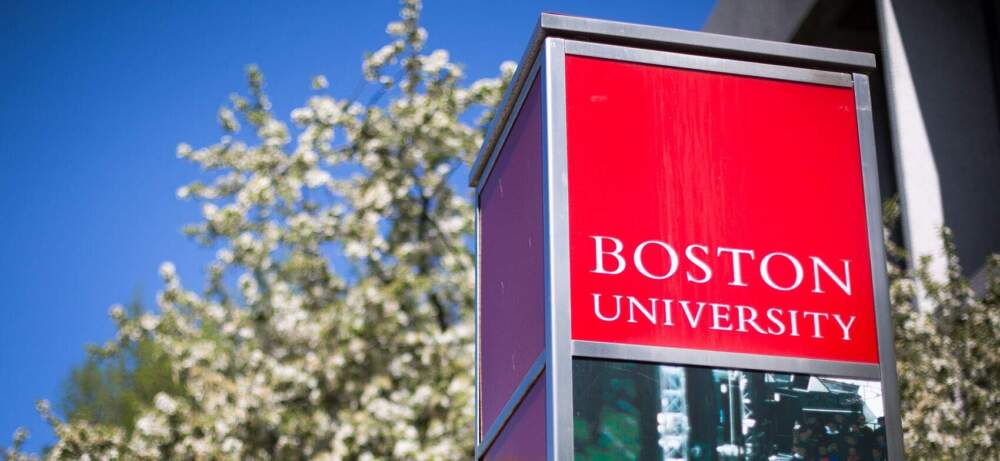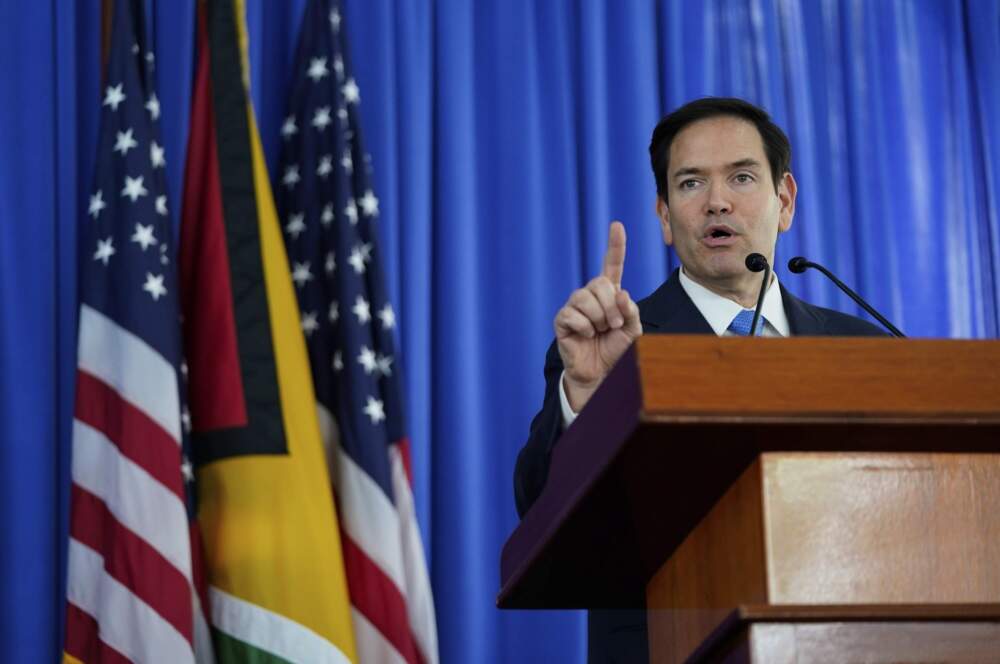Advertisement
Feds revoke visas of students at BU, Harvard, Tufts, Berklee, UMass and more

A number of international students at private and public universities in Massachusetts have had their visas revoked in the past week.
MIT, on Tuesday, said three of its community members had visa records revoked. Earlier, Tufts University, Harvard University, Boston University, Emerson College, Northeastern University, Berklee College of Music, Bridgewater State University and multiple campuses of the University of Massachusetts system have all said they have discovered student visas were cancelled in the last few days.
It is not immediately clear why the visas were terminated. Some schools said the federal government had not notified them of their students’ change of status, but rather learned about it when reviewing records.
University leadership now must piece together the full picture of what’s going on, said Rob McCarron, president of the Association of Independent Colleges and Universities in Massachusetts.
“These decisions are happening in a vacuum, without communication to the school or the student, and [university leaders] are trying to work backward to figure out why,” he said.
“It has created an environment of fear for the students who are here, not knowing if they will randomly have their visas terminated."
Rob McCarron, AICU Mass
McCarron said the confusion is intensifying the sense of alarm some students are already feeling on campuses.
“It has created an environment of fear for the students who are here, not knowing if they will randomly have their visas terminated," he said.
At Harvard University, staff learned that the federal government revoked the visas of three students and two recent graduates during a “routine records review,” according to a notice from the school’s international office on Sunday.
“We are not aware of the details of the revocations or the reasons for them, but we understand that comparable numbers of students and scholars in institutions across the country have experienced similar status changes in roughly the same timeframe,” wrote the Harvard International Office.
Harvard did not provide the names of the impacted students, citing privacy concerns, but said in the statement that staff had referred students to legal services.
Advertisement

Several Northeastern students and recent graduates had their visas revoked in the last week, according to a post on Northeastern’s website.
“As of now, we have no evidence that a Northeastern student or recent graduate has had their status revoked due to political advocacy or speech,” the post read.
Fifteen students across the five UMass campuses have had their visas terminated. These include six at UMass Amherst, seven students or graduates of UMass Boston, one student set to graduate this spring at UMass Dartmouth and one at UMass Lowell.
A spokesperson for the university said in a statement that federal officials did not notify the university. Impacted students were identified when university staff “proactively” reviewed immigration databases.
UMass President Marty Meehan called the recent wave of visa revocations “extremely troubling and upsetting.”
“Our international students, faculty and staff are valued members of our university, and these unprecedented actions by the federal government threaten all international students’ ability to lawfully study and work in this country,” he said in a statement.
A Boston University spokesperson confirmed that a small number of the school’s students learned their visas were terminated. (Editor's note: Boston University owns WBUR's broadcast license. WBUR is editorially independent.)
In a statement on the school’s website, the International Students and Scholars Office said they have observed a “concerning new pattern” of terminating foreign student’s records without notice.

Typically, the U.S. Department of State notifies the student when their visa has been revoked, said the ISSO statement. But over the last few days, federal officials have begun to terminate student records without notice. Now, ISSO staff are proactively checking the Student and Exchange Visitor Information System (SEVIS), a database used by the Department of Homeland Security to track information about international students on visas.
Most international students are on F-1 visas. If their visas are terminated, immigration officials can verify the student has left the country, according to the Department of Homeland Security. Students whose visas have been revoked due to a violation do not have a grace period.
Last Friday, the American Council on Education (ACE) sent a letter to the Department of State and the Department of Homeland Security seeking more information. All Massachusetts schools with known visa terminations are members of the council.
The letter said that international students were notified that their visas had been revoked and they needed to leave the country. The messages included no additional details about how to appeal or verify these visa terminations.
The Department of State did not immediately respond to requests for comment.
Over the last several months the federal government has increasingly scrutinized the campus activity and political views of international students. Last month, Secretary of State Marco Rubio estimated that he’s signed at least 300 letters revoking the visas of international students and other foreign nationals.

Last month, immigration officials detained a number of international students with apparent ties to protesting the war in Gaza, including recent Columbia graduate Mahmoud Khalil and Tufts doctoral student Rümeysa Öztürk.
What’s different with the latest round of revoked visas, some schools say, is that the students do not have a history of participating in political activity on campus.
Miki Matrician, the chair of the New England chapter of the American Immigration Lawyers Association, says some of the visa cancellations she’s consulted on appear to be related to previous arrest records, even minor ones.
“We’ve been having consultations with people who had charges that were dismissed years ago and their history has been disclosed,” explained Matrician. “They were vetted and now their SEVIS records are being terminated.”
So far, the students Matrician has been consulting with have a minor arrest on their record and have not been detained. She says students can try to challenge a visa revocation by either suing for a temporary restraining order against the federal government or seeking a reinstatement of their student visa records. Though several students have opted to bypass those options and plan to leave the country.
“I’m really just concerned in general that the administration is targeting the wrong people,” said Matrician. “The fact that these people are being picked up or their [student visa] records are being terminated. Everybody is basically panicking and fearful of what may be coming.”
Ted Mitchell, the president of the American Council on Education, wrote in the letter to the federal government that the abrupt revocation of visas impedes the ability of schools to advise their students.
“It is important institutions are in a position to reassure international students so they can continue to make exceptional contributions to their campuses, communities, and the nation,” he wrote.
If the federal government continues to target international students, the impact on campuses nationally — and close to home — could be extensive.
International students contributed nearly $44 billion to the economy in the 2023 - 2024 school year, according to the Association of International Educators. The U.S. hosts more than 1 million international students at colleges and universities across the country, according to data from Open Doors. Roughly 80,000 international students attend school in Massachusetts.
In a statement, Gov. Maura Healey said on Monday that international students are indispensable members of Massachusetts’ communities and essential to the state’s economy.
“It is absolutely unacceptable that students in Massachusetts have had their visas revoked with no notice,” Healey said. “The Trump Administration needs to immediately provide information about why this happened, and what they are doing to protect people's rights and due process.”
Healey stressed that the state would do everything to make sure international students feel welcome and safe in Massachusetts.
Sens. Elizabeth Warren and Ed Markey did not immediately respond to requests for comment.
With additional reporting from WBUR's Simón Rios and Cici Yu.
This article was originally published on April 07, 2025.

